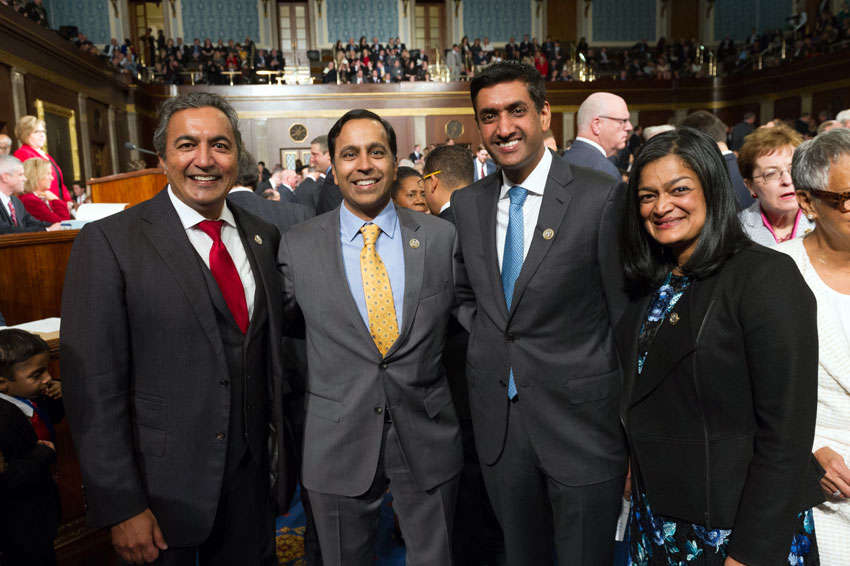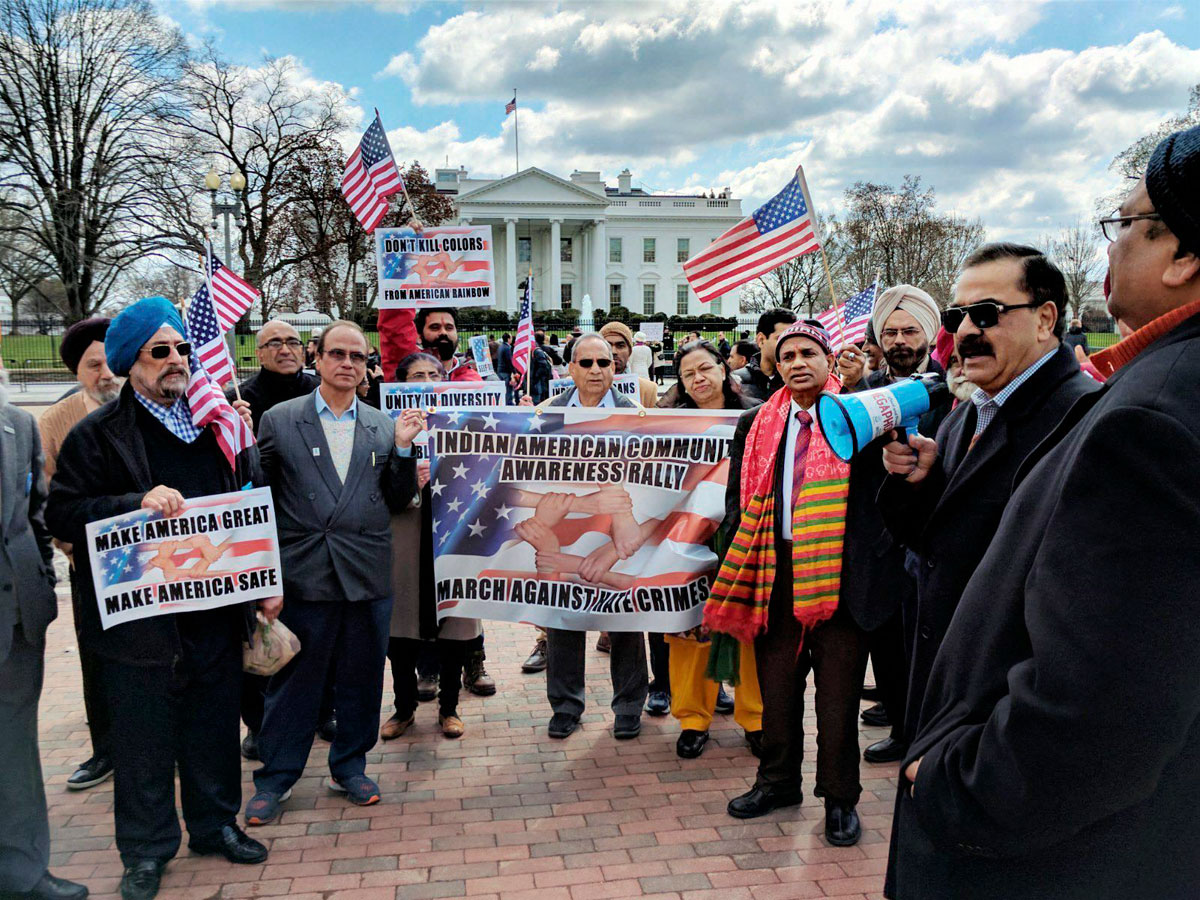Need to Stand Up Against Hate Crimes: U.S. Lawmakers
Representatives of various Indian American groups from in and around Washington, D.C. area at a peaceful protest and awareness rally against the recent surge in hate crimes against the community across the country, in front of the White House in Washington, D.C., March 19. (Press Trust of India)
Amid a series of hate crimes against religious and ethnic minorities, including Indian Americans, there is need for these communities to be united and speak up against such an increasing rhetoric, several Democratic lawmakers and human rights groups said, March 23, writes Lalit K. Jha. – @Siliconeer #Siliconeer #IndianAmerican #Hatecrime #AmiBera @AmiBera #DonaldTrump #KamalaHarris #PramilaJayapal @KamalaHarris @PramilaJayapal #RajaKrishnamoorthi #RajaKrishnamoorthi @TiESV #TiESV
“We have to step up against any incident of discrimination against the community or any others community or religion. This is just the starting point,” Congressman Dr. Ami Bera, the senior most Indian American lawmaker from California, said during a Congressional hearing.
Bera, the past co-Chair of Indian Caucus in the U.S. House of Representatives, said that it is time that the community rise up to this challenge.
“It would be incumbent upon all of us, if we see rise of Islamophobia or attack against the Sikh community, we have to stand up, we have to speak up,” Bera said.
Addressing the Congressional hearing organized by South Asian Americans Leading Together (SAALT) in association with several other rights bodies and advocacy groups, Congresswoman Judy Chu said the communities should collectively “push back” against the rising tide of hate crimes.
In recent weeks, three Indian men and one Sikh were victim of hate crimes across the U.S., she said, alleging that President Donald Trump continued with his pre-election rhetoric that has worsened the atmosphere in the country.
Congressman Raul Grijalva from Arizona said to single up and to victimize and demonize people because of their religion, country of origin and skin color is un-American.
“We have to be honest about the situation that we are dealing with today. We cannot allow racial identity and religion a dividing issue in this country. We need to stand firm. We need to defend the nation that we are part of,” he said.
Indian American Congressman Raja Krishnamoorthi called for a joint effort to fight a common threat.
“We need to get to the root cause of what is going on. We may have come on different ships in the history of our country but we are on the same the boat now,” he said.

“The most important values are treating each other with dignity with respect regardless of race and religion and empathetic to increased visibility,” said Congressman Ro Khanna from California.
As per a SAALT report ‘Power, Pain, Potential,’ which documents 207 incidents of hate violence and xenophobic political rhetoric aimed at South Asian, Hindu, Muslim, Sikh, Middle Eastern, and Arab communities, there is a 34 percent increase in less than a third of the time covered in its 2014 report.
“This breaks down further into 140 incidents of hate violence and 67 instances of xenophobic political rhetoric of which 196 or an astounding 95 percent were motivated by anti-Muslim sentiment. Additionally, one in five instances of xenophobic political rhetoric we documented came from presidential nominee, and now, President-elect Trump,” the report said.
“SAALT stands ready to work with Congressional leaders to fight hate violence and xenophobic political rhetoric impacting our communities nationwide,” said Suman Raghunathan, executive director of SAALT.
“Anti-Muslim and anti-immigrant policies explicitly targeting our communities continue to destroy the ideals of our quintessential nation of immigrants. We are committed to policies at all levels that reinforce the place our communities have in our nation now and as we continue to grow,” she said.
Pramila Jayapal, the first-ever Indian American women elected to the U.S. House of Representatives, said people are coming together collectively across the U.S. against hate crime.
Referring to the surge in hate-based incidents including in her own home state of Washington, Jayapal alleged that there is a series of discriminatory policies under the Trump Administration.
There is a direct connection between the hate crimes and the policies of the Trump administration, she said.
Immigration has always been “who we are as a country and that’s what we stand up for,” Jayapal said, adding that a resolution introduced by her in the Congress calls on the President that rhetoric and policies matters.
“It has to be a grass root movement as well. Our fight is long. This is the moment to remind ourselves that how strong this fight is. This is our country, we are here to stay,” she said.
Noting that America’s strength is defined by its diversity and respect for human being, not by its military might, Californian Congressman Mark Takano said the people cannot forget the fundamental core values of the U.S.
“There is no place for bigotry in this country,” said Takano, who represents a district which was once represented by Dalip Singh Saund, the first Indian American elected to the Congress.
Congresswoman Grace Meng, who represents parts of Queens in New York, which has a sizeable Indian American community, said that these communities have been the target of hate crimes.
“The road ahead will be very tough, politically,” Meng said.


